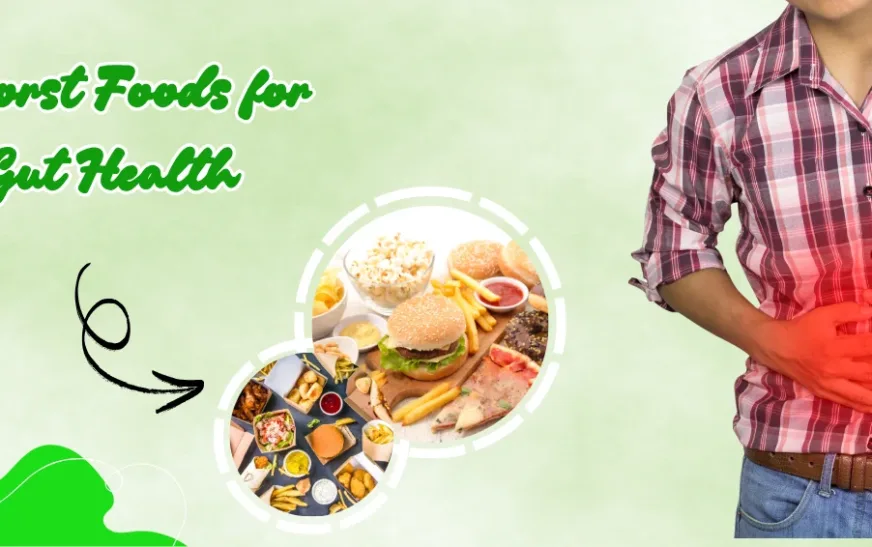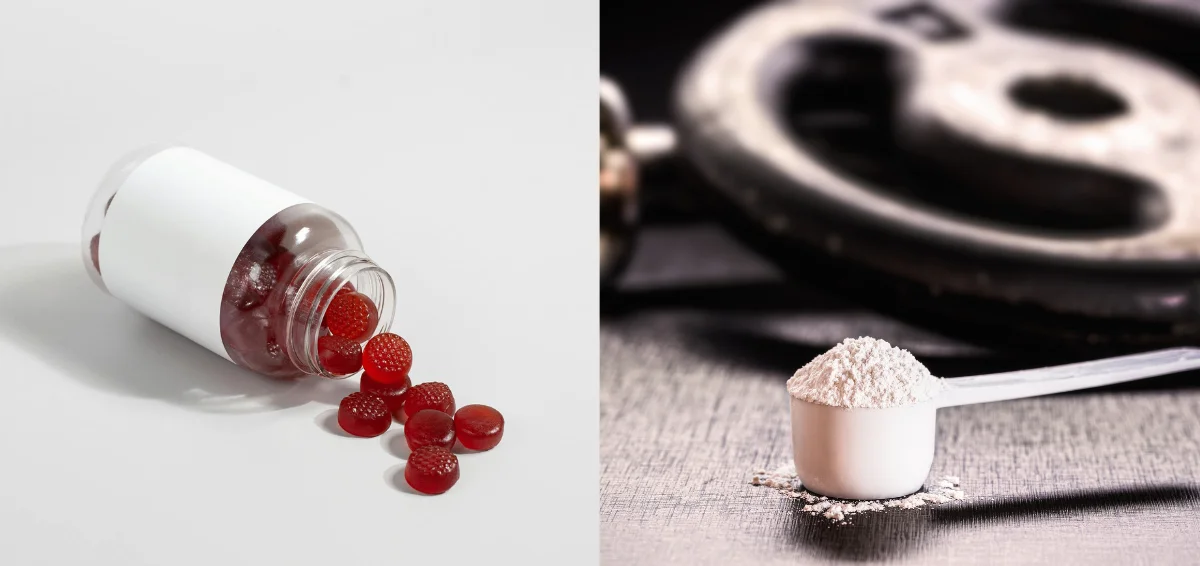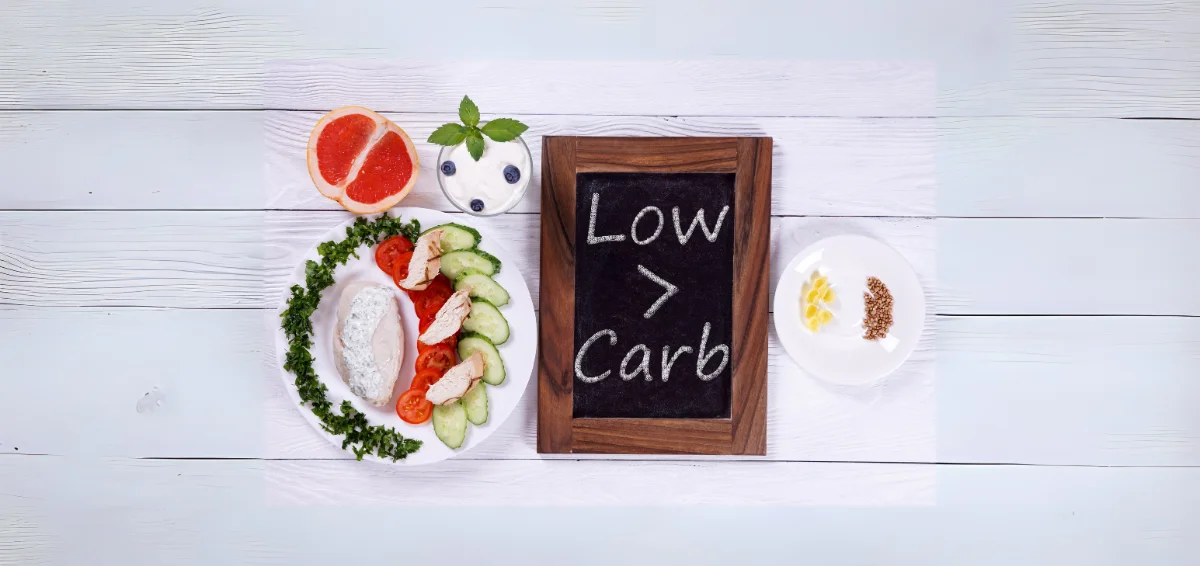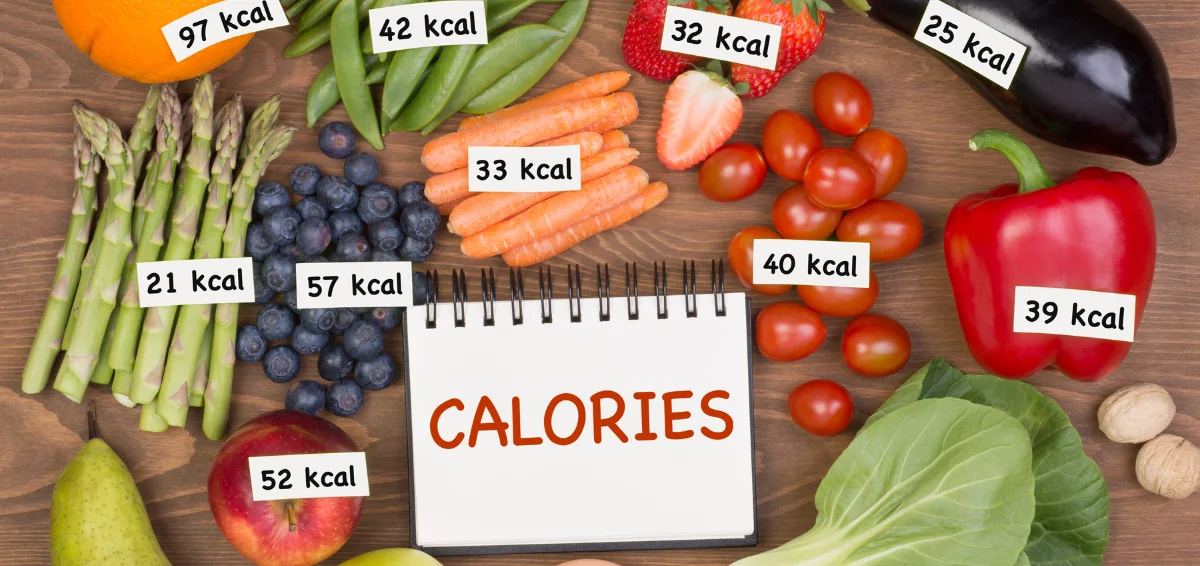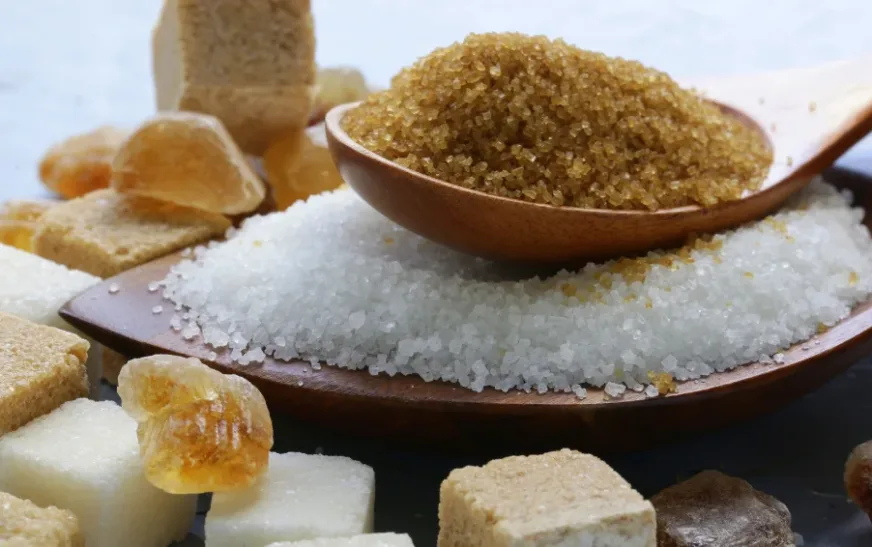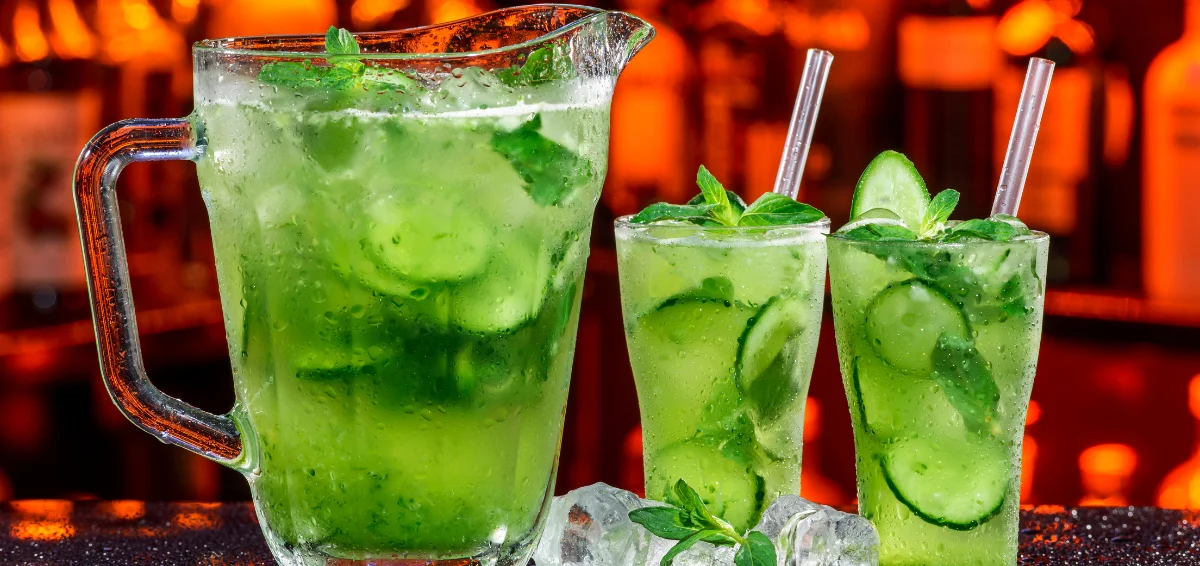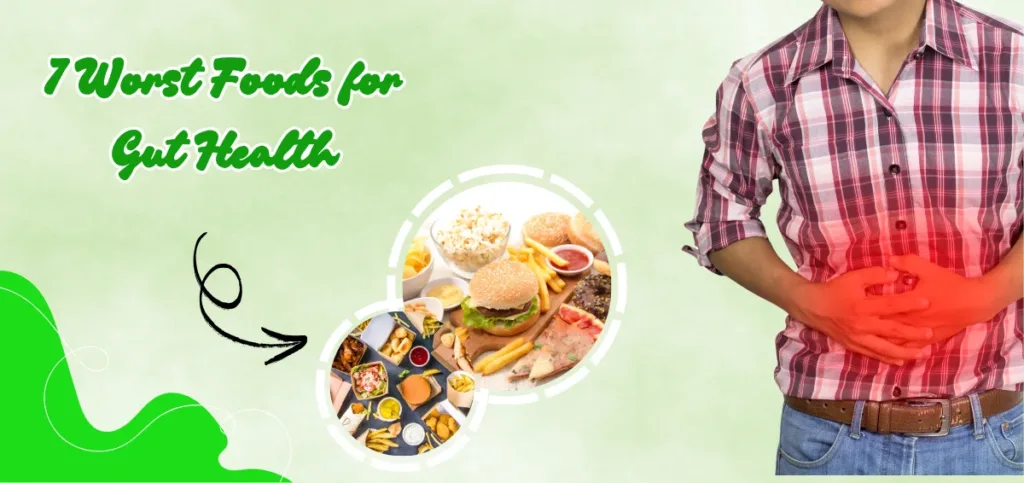
The adage “listen to your gut” isn’t limited only to your intuition. A healthy gut is critical for overall wellness. Everything that you put inside your mouth travels to your gut. Here, trillions of microbes like bacteria and fungi feed on it. If the food you consume is good, your body will be in good health. If not, you’ll experience a host of problems like digestive issues, lack of energy, and more.
That’s why you must pay attention to what you regularly consume. Not everything is good for your gut; for a healthy gut, colorful fruits, vegetables, and whole grains work wonders. Food rich in refined sugar and saturated fat has the opposite effect.
Keep reading to find out the 7 Worst Foods for Gut Health, a guide to what your gut dislikes the most.
7 Worst Foods for Gut Health
1. High Sugar Foods
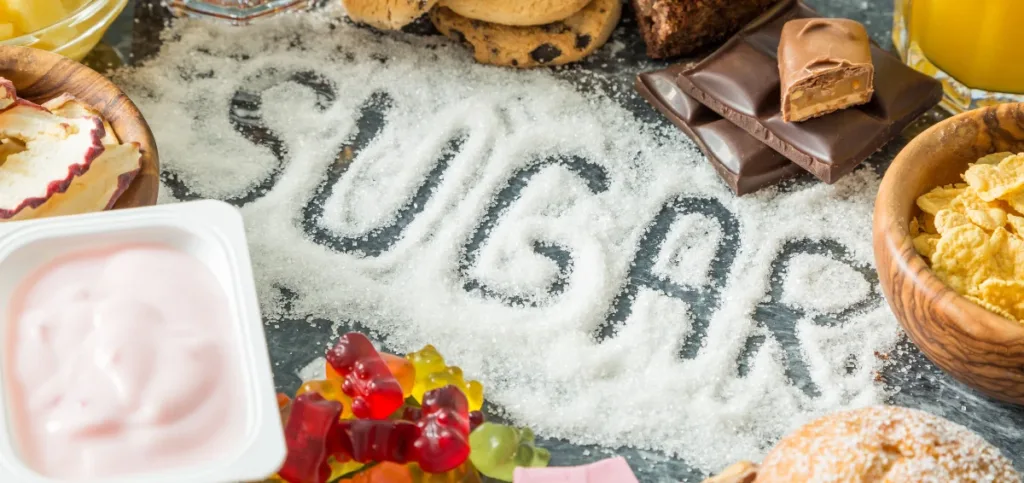
This category contains all sweet treats like candy, cookies, cakes, and ice cream. How does the high amount of sugar in them harm your gut? It does so in various ways. An article in Nutrients describes wonderfully how much food impacts your gut health.
Firstly, it disturbs the balance of bacteria. The gut has many species of bacteria. The most prominent ones are Bacteroidetes, Proteobacteria, Firmicutes, and Actinobacteria. Excessive sugar alters the balance between Bacteroides and Proteobacteria. The small intestine cannot absorb excess sugar. Proteobacteria consume this sugar. They then increase their number and become more than Bacteroides. This imbalance is called dysbiosis. If this happens, you are much more likely to experience various gastrointestinal issues, like irritable bowel syndrome (IBS) and inflammatory bowel disease (IBD).
High-sugar foods can also disrupt the tight junctions in your gut lining. This causes harmful substances to pass into the bloodstream. It can trigger inflammation and a greater immune response. Thus, you suffer from food allergies, neurological disorders, or autoimmune problems.
Read Also: Brown Sugar vs White Sugar
2. Processed Meats
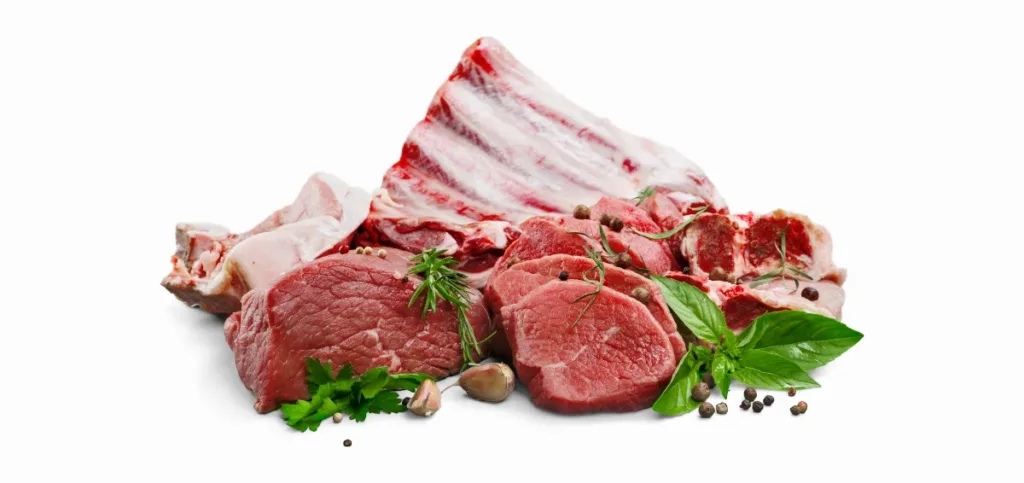
This one is a killer. We are talking about bacon, ham, frankfurters, and salami. Animal proteins in processed meat reduce beneficial gut bacteria. This can lead to diabetes and cardiovascular disease. Food like red meat has a high-fat content. At the same time, it has less fiber. This makes it hard for your body to digest it. Eating too much of it (more than 700 grams per week) negatively impacts the gut bacteria. You are at a much higher risk of developing bowel cancer than those who don’t consume this amount of this food.
Processed meat contains a chemical called haem. This is broken down in the gut. The chemical damages the cells lining the bowel, leading to bowel cancer. When you digest processed meat, the same chemical form. Moreover, to preserve processed meats, manufacturers use preservatives like nitrate and nitrite. Both of them produce N-nitroso chemicals that cause bowel cancer.
3. Ultra-Processed Foods (UPFs)
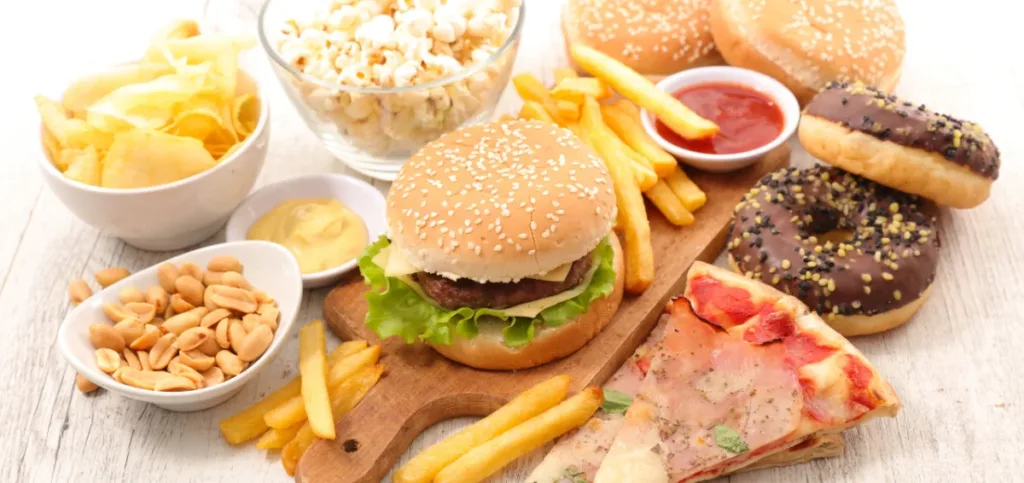
Do you eat a lot of food out of a package, bag, or box? You may be consuming a high amount of ultra-processed food, harming your gut health with every bite. Let’s understand the science behind why such foods are bad for your gut.
UPFs cause pro-inflammatory microbial strains to proliferate. Such foods also lower the production of short-chain fatty acids. This alteration in the gut microbiome causes systemic inflammation and oxidative stress. Both of these are linked to the development of chronic diseases.
Besides, UPFs also contain emulsifiers. This prevents the production of anti-inflammatory or beneficial bacteria from occurring. It increases gut permeability. It is the degree to which substances can pass through your intestinal lining and into the bloodstream. High permeability (or leaky gut) impairs your body’s ability to absorb nutrients from food. High fat in UPFs also increases your chances of developing cardiovascular ailments.
4. Alcohol

Excessive alcohol intake damages your gut in various ways. Alcohol increases the risk of acid reflux, which can lead to conditions like esophageal cancer. It does this by relaxing the lower esophageal sphincter. The sphincter prevents acid in the stomach from backing up into your esophagus. It doesn’t function properly when it has been relaxed by alcohol. Alcohol also causes an imbalance in the gut bacteria. It leads to an increased production of harmful bacteria. This bacterium causes irritation and inflammation. It also leads to the leaky gut problem we discussed above.
Inflammation of the stomach lining that occurs due to alcohol reduces mucus production. It causes abdominal pain and nausea in minor cases. In major cases, it can progress to anemia, ulcers, and even stomach cancer. Finally, alcohol also leads to bloating. This occurs due to a disruption in the way your body digests sugar and bacterial imbalances. Too much alcohol causes fungal overgrowth in your gut. It increases gas production in your gut, so you experience bloating.
5. Fried Foods
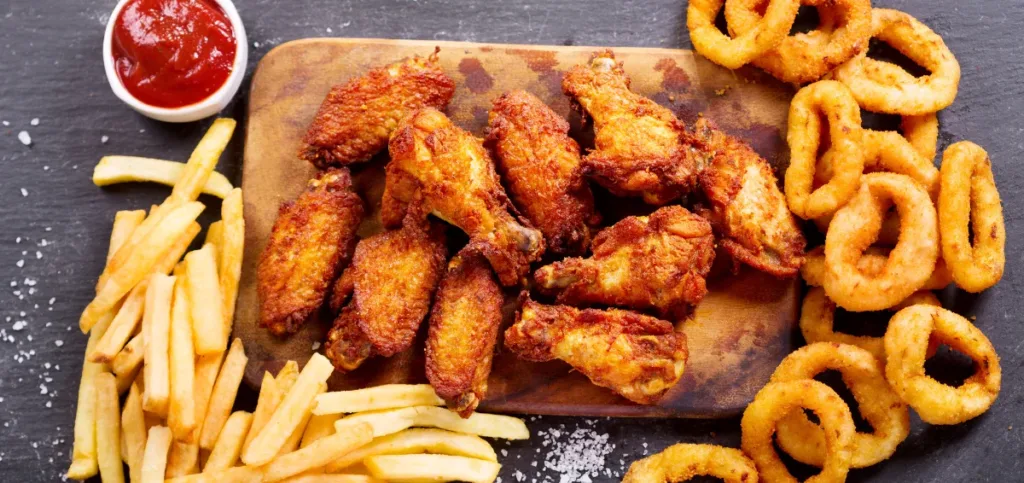
Fried foods are cooked with high amounts of oils and fats. Your body has to work a lot to digest foods like deep-fried chips and onion rings. Sometimes, they move through your body quickly without even being digested properly. This, in turn, causes problems like gas, diarrhea, and abdominal pain. These are only the immediate effects of eating such food.
According to experts, fried food containing high fat stimulates the production of bad bacteria in the gut. At the same time, they reduce the number of good bacteria. When there is less diversity in the gut microbiome, it negatively impacts your gut health. These foods also contribute to inflammation. They cause your immune system to release pro-inflammatory cytokines. Excess production of cytokines causes excess inflammation. Fried foods are especially bad for those with IBS as they worsen their symptoms, like abdominal pain.
6. Artificial Sweeteners

For a long time, it was believed that artificial sweeteners do not harm gut health in any way. This hypothesis is proving wrong fast. According to Maya Feller, owner of Maya Feller Nutrition, studies have shown how a regular intake of added sugars lowers the number of good bacteria in the gut. It also reduces microbial diversity.
An imbalance of the gut microbiome or dysbiosis leads to various health issues. These include IBD, IBS, and gastritis, to name a few. Artificial sweeteners impair glucose metabolism in certain people. Studies related to artificial sweeteners have mainly been focused on sweeteners such as aspartame, saccharin, acesulfame, and Splenda.
Read Also: Foods to Avoid With Trulicity
7. Refined Grains
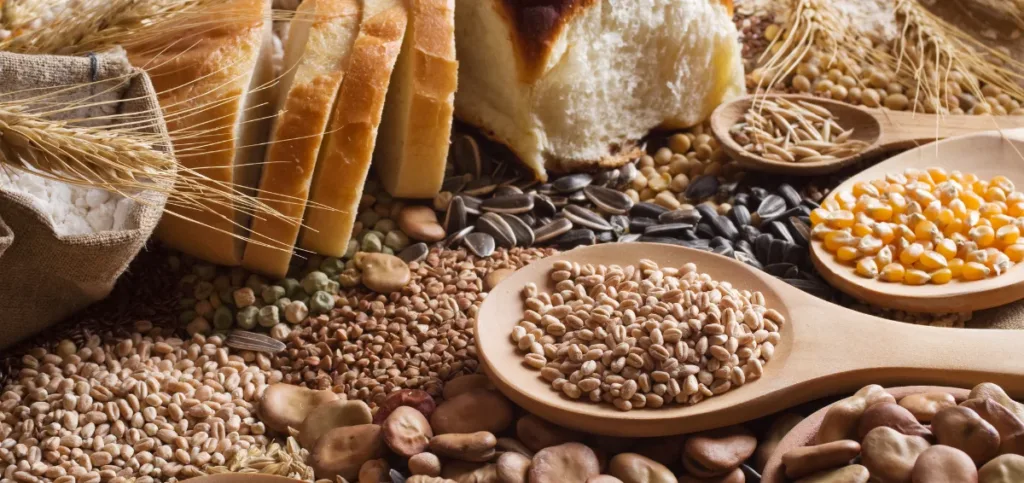
Refined grains lack minerals and fibre. Food like white rice, white bread, and other refined grains is processed in a way that it loses all its nutrients. Fibre is critical for the production of good bacteria in your gut. It also helps maintain proper digestive activity.
Refined grains do not contain fiber. This causes imbalances in the microbiome, leading to poor gut health. Once inside your gut, refined grains are broken down into glucose very quickly. This leads to spikes in your blood sugar level. It causes inflammation and compromises the gut barrier over the long term.
Summing up
Maintaining good gut health doesn’t mean you have to exclude everything from your diet. On the contrary, you can nourish your body with nutrient-dense alternatives like fruits, vegetables, whole grains, and probiotic-rich foods like yogurt. These foods stimulate the growth of beneficial bacteria, thereby maintaining microbial diversity. When you have a healthy gut, you are overall a healthy individual. There are so many delicious things that you can make out of gut-friendly foods. They not only taste good but also prevent you from experiencing gut health issues like indigestion, bloating, abdominal pain, and nausea.

